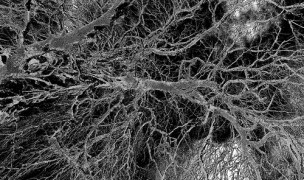 20 Terms
20 TermsHome > Industry/Domain > Biology; Medical > Human genome
Human genome
The human genome consists of 23 chromosome and the small mitochondrial DNA. 22 of the 23 chromosomes are autosomal chromosome pairs and the last one being a gender-determining pair. In total, the human genome contains the sequences of the 3 billion chemical base pairs that make up human DNA and approximately 20,000-25,000 genes. By understanding human genome, scientists are able to develop new medical applications that can significantly advance the state of health care.
Contributors in Human genome
Human genome
diploid
Medical; Human genome
1) The normal number of chromosomes in a somatic cell; in humans, 46 chromosomes (22 pairs of autosomes and two sex chromosomes) 2) Diploid is a cell or organism that has paired chromosomes, one ...
cysts
Medical; Human genome
1) A sac or capsule filled with fluid. 2) A closed sac having a distinct membrane and developing abnormally in a body cavity or structure. 3) A body resembling a cyst: as a) a capsule formed ...
dextrocardia
Medical; Human genome
1) Location of the heart in the right hemithorax, with the apex directed to the right. 2) An abnormal condition in which the heart is situated on the right side and the great blood vessels of the ...
dehydration
Medical; Human genome
1) The condition that results from excessive loss of water from a living organism. 2) State of excessively reduced body water or water deficit. 3) The process of dehydrating; especially: an ...
cranial nerves
Medical; Human genome
1) Twelve pairs of nerves that carry general afferent, visceral afferent, special afferent, somatic efferent, and autonomic efferent fibers. 2) Any of the 12 paired nerves that originate in the ...

